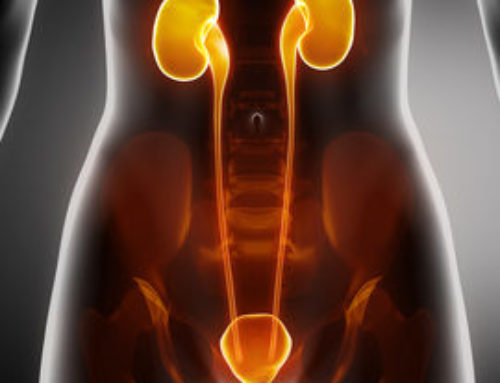 Healthy eating for you and your baby
Healthy eating for you and your baby
Eating a healthy, balanced diet is an important part of a healthy life style and is every bit as important now that you’ve given birth as it was during your pregnancy. Now that you’ve had your baby, you need to help your body to heal and recover from that process whether you are breastfeeding or not.
The early days and weeks after your baby’s birth are recognised as being extremely tiring for most new mums as you adjust to the demands of early motherhood and your baby’s needs. It is therefore important that you do as much as you can to look after your own health and well-being and maintain your strength.
A healthy, balanced diet
It is now widely accepted that eating a healthy, balanced diet and having a variety of foods from the main food groups is the best way to obtain all the nutrients that your body needs for health and well-being. Each day you should aim to eat and drink the following:
- five portions of fruit and vegetables
- starchy foods such as bread, rice, pasta, cereals and potatoes (try to make these the main part of your meal – they’ll keep your energy levels up!)
- protein foods such as fish, lean meat, eggs, beans and pulses (these promote healing and are particularly important if you’ve had stitches or a caesarean birth)
- dairy foods such as milk, yoghurt, fromage frais and cheese
- regular glasses of water, diluted fruit or vegetable juices. You should drink only small amounts of alcohol, and, if you are breastfeeding, it’s best to avoid alcohol completely.
It is also a good idea to cut down on high fat and sugary foods such as cakes, crisps, biscuits, and fast food. Caring for your newborn often means you have very little time for yourself and it’s easy to rely on a quick energy ‘fix’ from biscuits, sweets and cakes. These foods boost your energy levels for only a short time, which leaves you craving for more to eat. It is far better to have healthy snacks available and when you feel hungry or in need of an energy boost eat foods such as: fresh/dried fruit, hummus with pitta bread/vegetable sticks, pasta or breakfast cereals/bars. These foods are far more nutritious and will sustain your energy levels for much longer!
Extra requirements when you are breastfeeding
In addition to the foods that make up a healthy balanced diet, there are some extra requirements needed when you are breastfeeding, including the need for increased energy foods (ie extra calories), as well as plenty of fluids. You may feel extra thirsty and need to have a drink each time your baby breastfeeds – try to make sure you have a glass of water, diluted fruit juice or milk to hand! Breastfeeding also burns up a lot of calories, which is why women who choose this method of baby feeding, tend to return to their pre-pregnant state a lot quicker than women who formula feed. It is perfectly normal to feel hungry, so eating regular balanced meals and drinking plenty of fluids will help to ensure that your body maintains its milk supply. The general advice is to listen to your body and follow what your appetite and thirst tells you.
Should I avoid certain foods while I’m breastfeeding?
Very occasionally, breastfeeding mothers may find that a food they’ve eaten seems to have upset their baby’s tummy. The only way to determine whether a specific food is the ‘culprit’ is to stop eating it for a week and see if the baby is more comfortable. In the main, breastfeeding doesn’t mean that you need to restrict your normal diet – whatever you ate before giving birth can still be enjoyed.
Specific vitamins and minerals
Vitamin D
Maintaining adequate vitamin D stores for both your own and your baby’s health is as important when you are breastfeeding as it was during your pregnancy. However, some women may be more susceptible to low levels of vitamin D (vitamin D deficiency). If you are of South Asian, Middle Eastern, African or Caribbean family origin, are vegetarian, your diet is particularly low in vitamin D, your culture/religion requires your clothing to cover most of your body (particularly in regions where there is little sunlight), you are predominantly housebound, or significantly overweight, you may be at risk of low levels of Vitamin D and may need to think about increasing your intake of this vitamin. If this is the case, you can choose to eat more vitamin D rich foods, including oily fish, such as, sardines or salmon, cooked eggs, meat and vitamin D fortified margarines, spreads or cereals. Your midwife or GP can also prescribe Vitamin D supplements for you to take.
The National Institute for Health and Clinical Excellence (NICE), which is a special health authority of the English National Health Service, recommends that pregnant and breastfeeding women take a vitamin D supplement of 10 micrograms each day. Healthy breastfed babies born to mothers who have followed this recommendation should start receiving vitamin D supplements (as part of a multivitamin supplement) from six months of age. If there are any concerns about a mother’s vitamin D status during pregnancy, or she is considered susceptible to low levels of vitamin D, then vitamin D supplements for mother and baby should be started soon after birth.
Vitamin A
You will have been advised in pregnancy to avoid very high intakes of one form of vitamin A (called ‘retinol’), which has been linked with babies being born with birth defects. Abnormally high levels of retinol are found in liver, liver pâté, sausages, fish liver oils and some supplements. If you are breastfeeding you will need to continue to avoid eating liver and liver products.
Iron
Your body needs iron to make haemoglobin (see our feature on Anaemia after childbirth). Blood lost around the time of your baby’s birth can cause your haemoglobin levels to fall; therefore, it’s important to eat foods that are iron rich, including: red meat, dark green vegetables, fortified breakfast cereals, wholemeal bread, and eggs. If you also eat vitamin C rich food at the same time as these foods (eg fresh orange juice with wholemeal toast), this makes it easier for your body to absorb the iron. Whereas, tea, coffee, phytates (which are found in wheat and other cereals) and oxalates (which are found in rice) can reduce iron absorption.
Useful tip: Tea and coffee are best drunk between, rather than with, meals
Minimising allergies
The Department of Health says there is no evidence that eating or not eating peanuts while you are pregnant and breastfeeding affects your baby’s chances of developing a peanut allergy. However, despite the Department’s revised guidance you may still prefer to avoid eating peanuts while you are breastfeeding your baby. If you have any concerns or have allergies yourself, your GP, midwife or health visitor can advise you.
Is it okay to start dieting now that I’ve had my baby?
Once you’ve given birth, it’s quite normal to want to get back into your pre-pregnancy clothes. However, it isn’t a good idea to start dieting as soon as your baby’s born because you need to maintain your energy levels to help you recover from their birth. Choosing the type of foods you eat and when you eat them, will help healthy eating habits become part of your daily routine and supports future weight loss. If you are worried about your weight, talk to your midwife, health visitor or GP who will be able to advise and support you.












